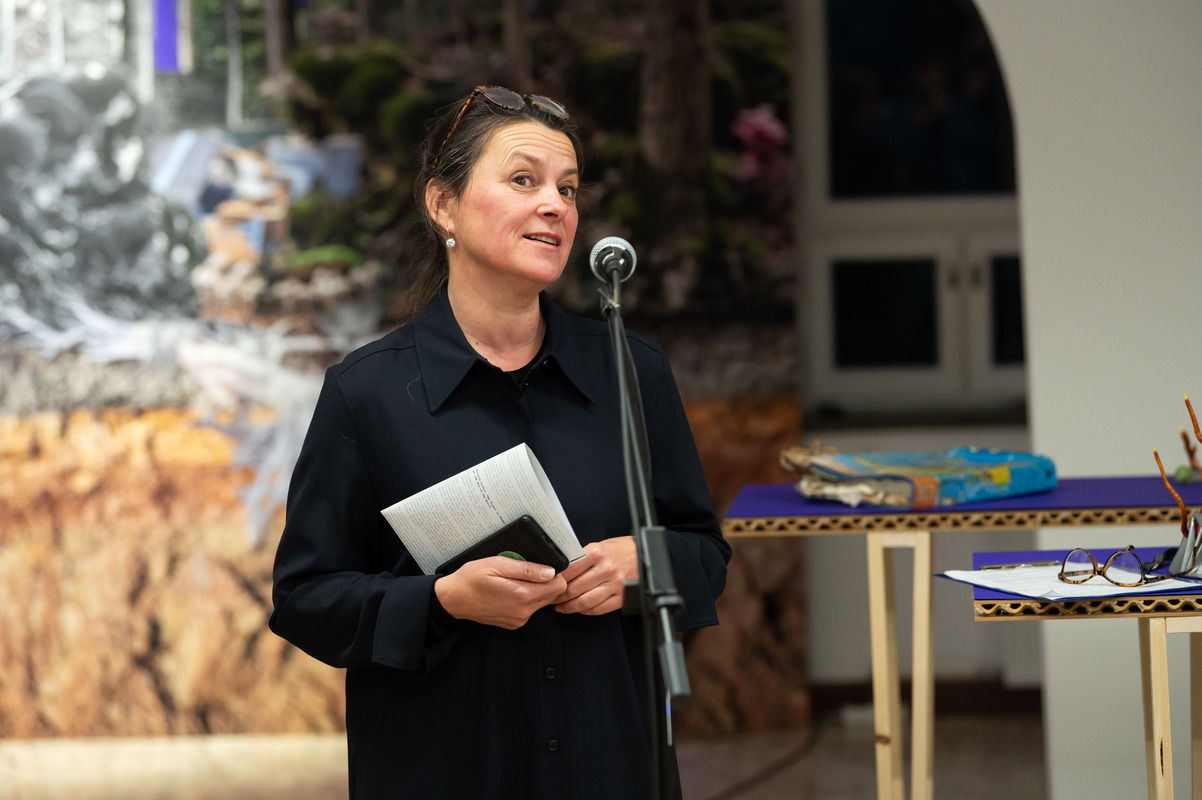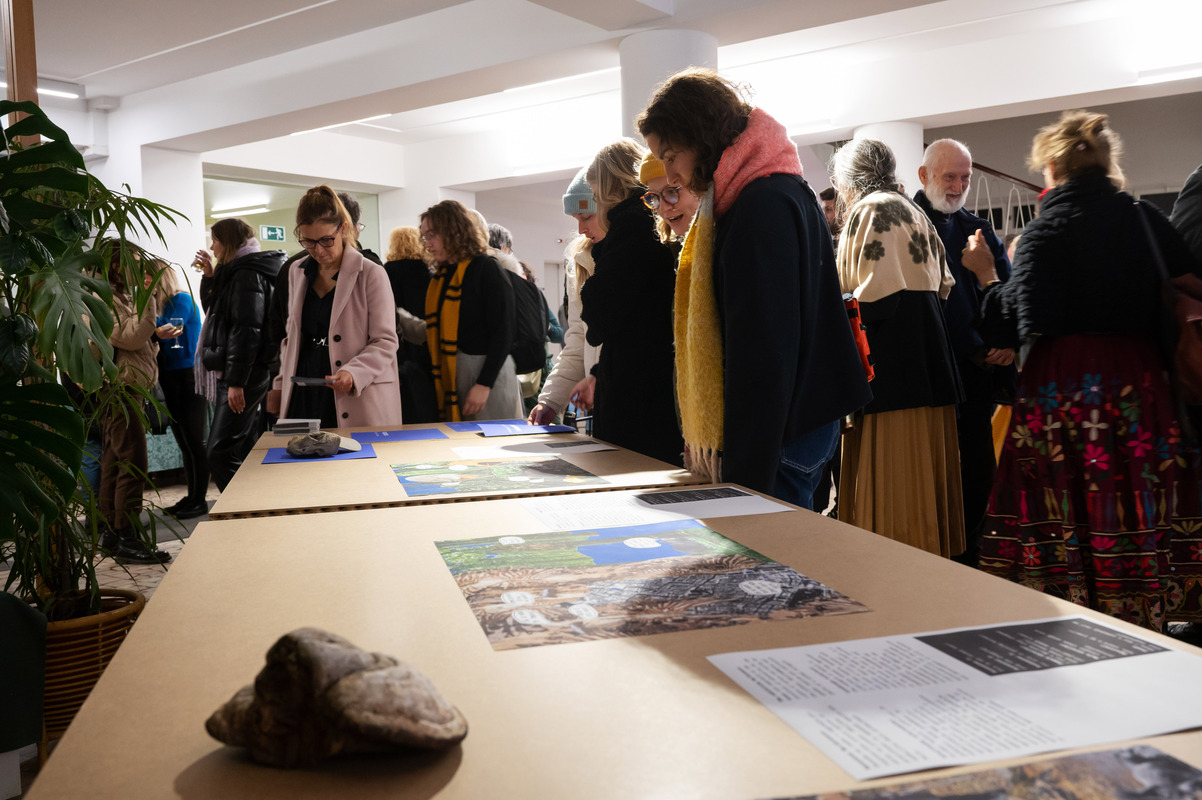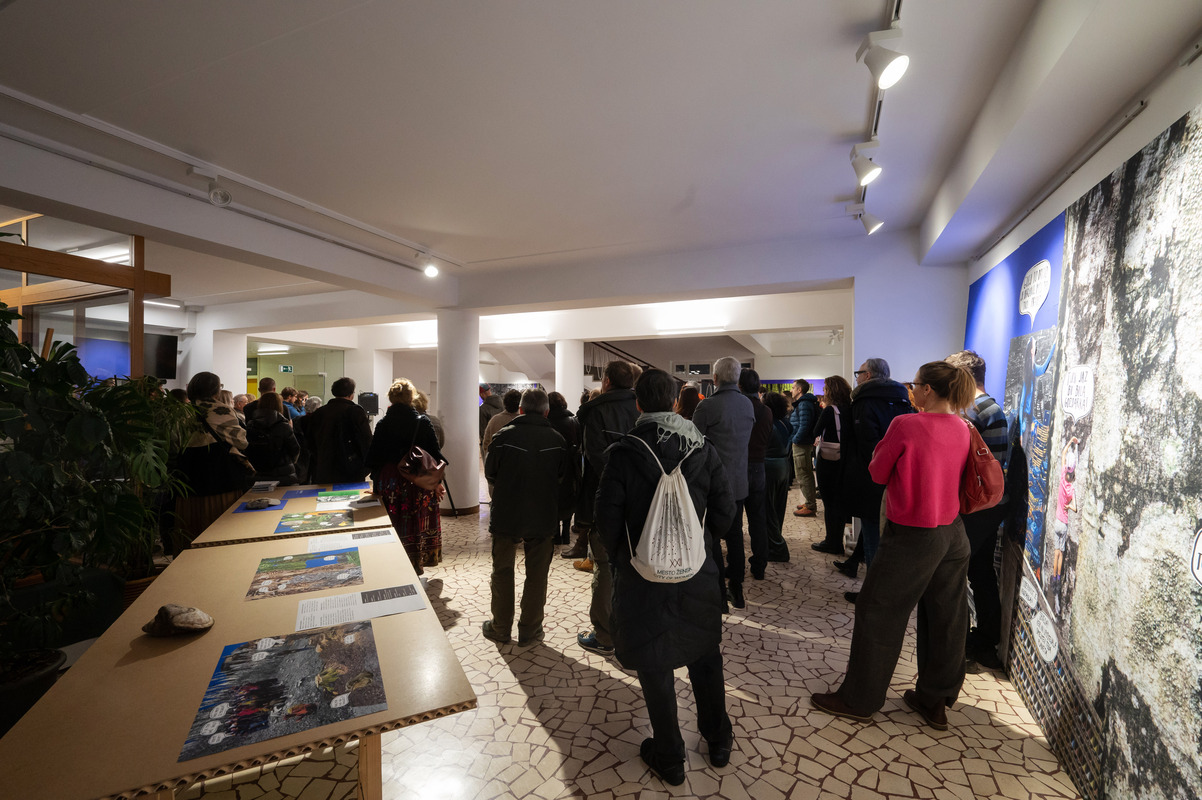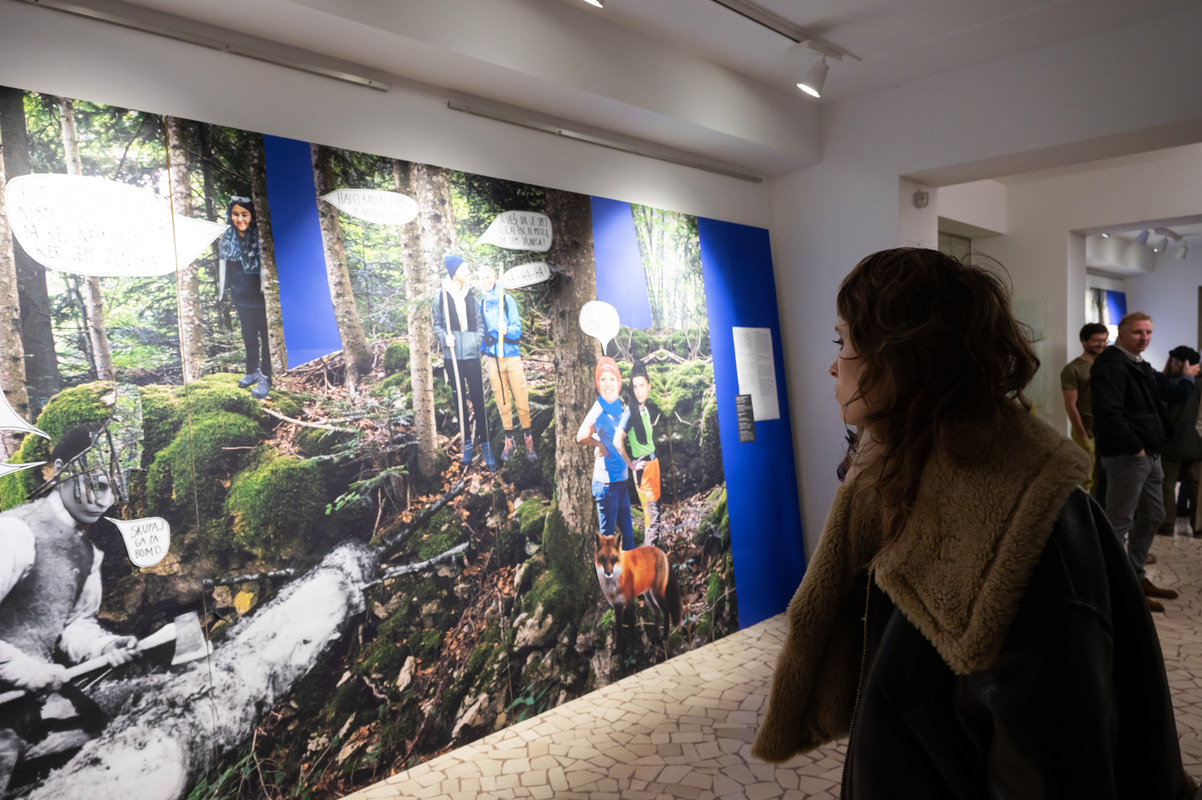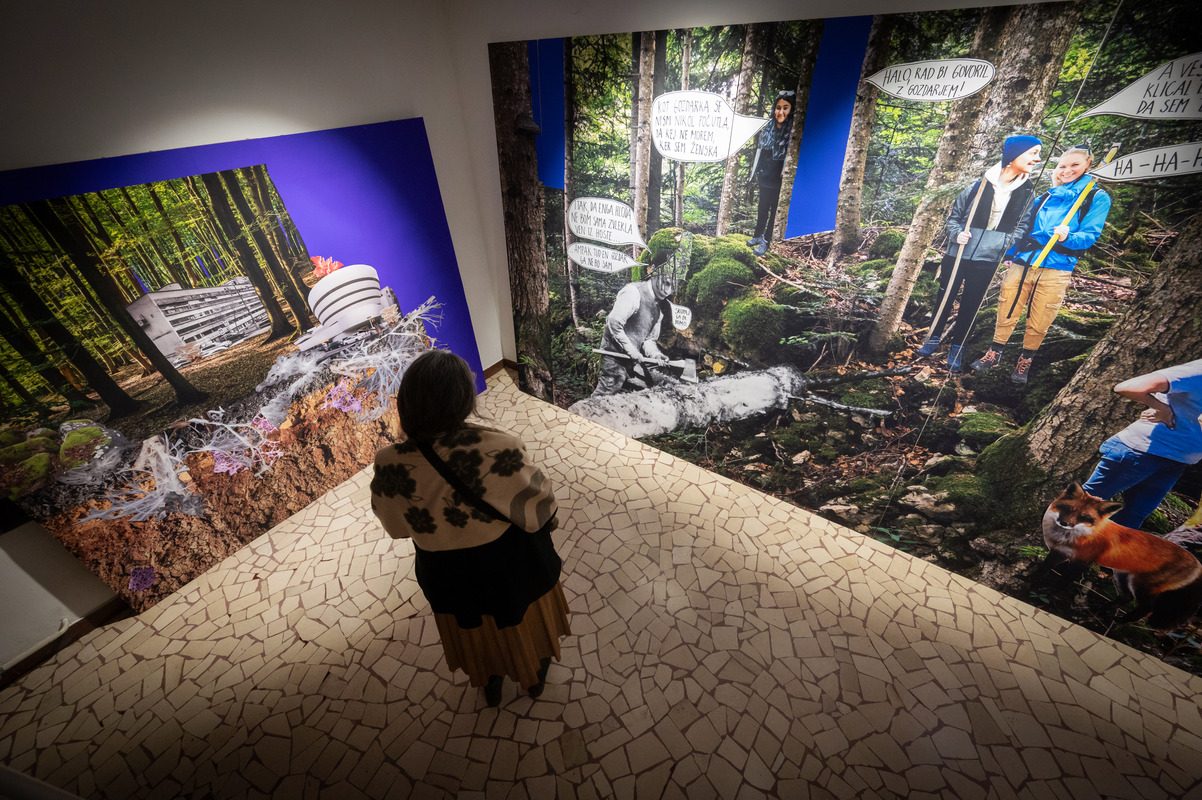Polonca Lovšin’s exhibition “The Forest in Women’s Hands and Mushrooms at the End of the World“
30 November 2023–31 January 2024
Slovenian Forestry Institute, Večna pot 2, Ljubljana
Monday–Friday, 9:00–14:00
Opening: Thursday, 30 November 2023, at 16:00
Exhibition guided tour: Wednesday, 13 December 2023, at 17:00
Due to the forecast of bad weather, we are cancelling the opening performance: What Does the Forest Say?
30 November 2023, 15:30–16:00, by the entrance to the Forestry Institute car park; performers: dancers and volunteers under the direction of choreographer Klavdija Križ Potisk; music: Tjaša Avsec, Tilen Stepišnik, Ksenja Kohek
The exhibition The Forest in Women’s Hands and Mushrooms at the End of the World presents new works by the artist and architect Polonca Lovšin, who in recent years has focused on the topic of forests and their importance for the future of our planet. She is interested in the more-than-human perspective and views the forest as a complex ecosystem that reveals the connectedness between humans and other living beings in their environment.
Each of the two exhibited works examines in its own way the relationship between people and the forest.
Spotlighting women foresters, hunters, and forest owners in Slovenia, The Forest in Women’s Hands examines our relationship to forests through the question of gender. In doing so, it relies on research by the Slovenian Forestry Institute which shows that, in contrast to their male counterparts, female forest owners are more likely to prioritize the ecological and social functions of their forest land over commercial interests.
Mushrooms at the End of the World is centred on fungi – organisms that connect all life on earth. Among the planet’s oldest inhabitants, fungi are found everywhere around us and even inside us. They possess incredible transformative power, turning rocks into soil, producing poisons and hallucinations, cleaning radioactive soil, and degrading crude oil and plastic. They are also vital for forests and trees, with which they exchange essential substances for survival. The artwork visualizes the transformation of ordinary human objects, houses, and cities, from which fungi create the fertile soil for a new beginning.
Polonca Lovšin conceives the exhibition around the question: Can the ecological and social priorities of women in forestry and the transformative power of fungi lead us to greater respect for the interdependence and connectedness of the living world and, as a result, better conservation of our forests for the coming generations?
The works were created in collaboration with women foresters, hunters, and forest owners in Slovenia and the microbiologist Primož Turnšek. They reference the international project Fem4Forest: Forests in Women’s Hands (2020–22), of which the Slovenian Forestry Institute was a lead partner, as well as the books The Mushroom at The End of the World by the anthropologist Anna L. Tsing and Entangled Life: How Fungi Make Our Worlds, Change Our Minds and Shape Our Futures by the biologist Merlin Sheldrake.
Partners for the exhibition: Igor Zabel Association for Culture and Theory, Slovenian Forestry Institute, KUD Obrat
Co-funded by: the European Union, Ministry of Culture of the Republic of Slovenia

